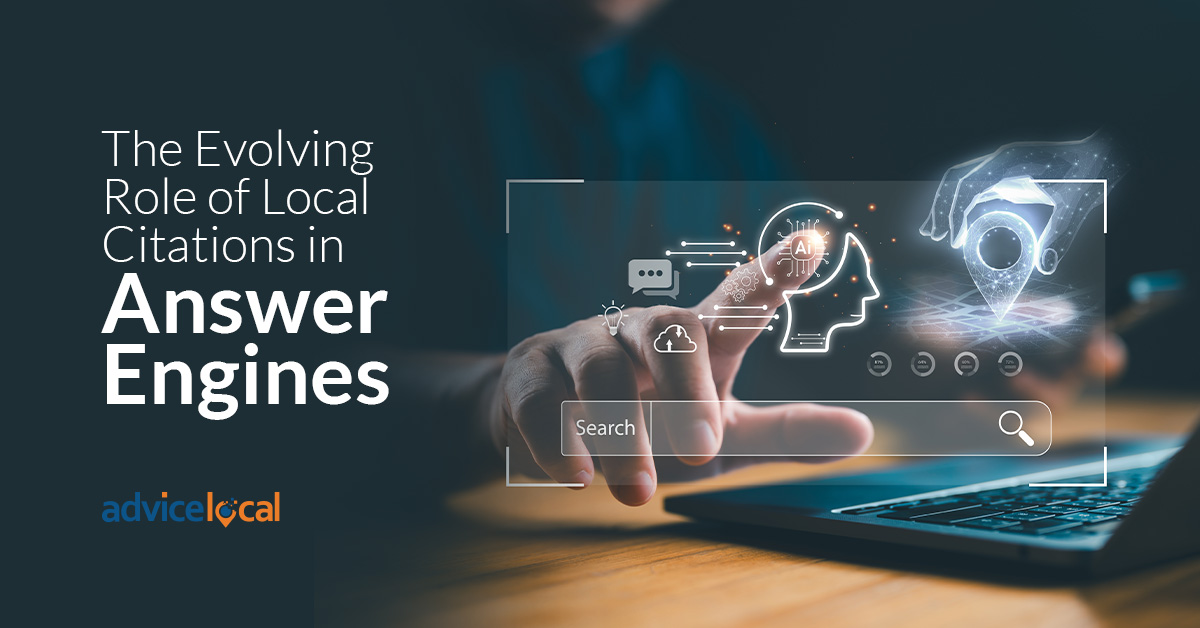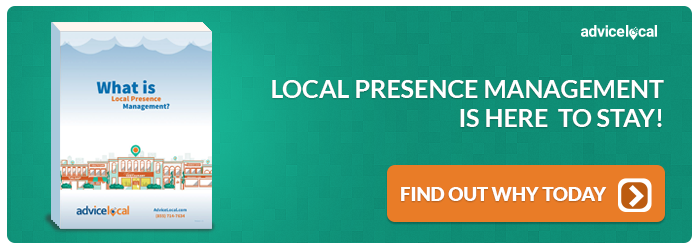If you’ve heard it once, you’ve heard it a thousand times, search and local SEO are changing. Now we talk about AI optimization (AIO) and the importance of answer engine (AE) readiness, because thanks to ChatGPT, the ways consumers search have changed dramatically. Local citations were at the core of traditional SEO and continue to play a role (albeit an evolved one) in answer engines, and today we’re looking closely at this shift.
The Transition From Traditional Search Engines to AI Search
ChatGPT has quickly become a go-to search engine, especially for younger consumers, and is one of the reasons changes in search are moving so swiftly. ChatGPT, Google Gemini, Microsoft CoPilot, Perplexity and Grok are examples of generative AI answer engines. These large language models (LLMs) pore over tons of data to understand the vastness of information on the web, compile it, then summarize it into a simple answer.
Answer engines differ from traditional search engines in user experience as well as back-end data use. Consumers interact with AEs in a conversational manner, where intent is gauged and answers returned. Questions build on one another for longer “conversations,” meaning that good, clean data needs to be readily available.
Traditional search engines focused on specific keywords and phrases. Fighting for those was the difference between ranking highly in Google and Bing or being cast into the shadows, behind the competition. Understand that both traditional and AI search share an important base—the need for clear, reliable data in the form of a local business citation. In the same way that bad citations ruin ranking chances in Google, inconsistent local citations can damage your clients’ AI visibility.
Good Local Citations are Key to Traditional SEO & AI Search
While we do talk a lot about local business citations, as a refresher, a citation is the mention of a business’ name, address and phone number (NAP) data anywhere on the internet. It seems simple, right? But realize that NAP data can land in so many places, and an “inconsistency” can be something very small.
For example, a business name listed as “ABC Learning Center Inc.” on a website, but shown as “ABC Learning Center” at an old address online is an inconsistency, and it’s one that can cost you money, as there is no sure way for the AI to confirm this business is the same.
This is where listings management services play a key role in keeping business data consistent across hundreds of sites. These sites include trusted broad directories, mapping apps, GPS and data aggregators. That NAP information is the key to unlocking new business in traditional search. And now, in the AI Age, local citations still matter a great deal in establishing a business as a real entity.
The 2026 Local Search Ranking Factors just released proves the importance of citations and shows they are making a major comeback.
How Do Answer Engines Use Local Citations?
So how do local citations affect answer engines? And why are they still relevant if AI Overviews, Gemini and ChatGPT aren’t serving up ranked lists of businesses? Answer engines aggregate data from multiple sources, including directories and citation networks, to create their signature summarized answers. The robots behind them use local citations to verify certain facts.
When these robots identify relevant content and can then verify that the business providing it is real by “reading” through clear structured data—consistent NAP, schema markup and business listings—they are more likely to trust and use that source. That trust is its own form of currency in AI search. The accuracy and consistency of local citations affects whether or not client businesses appear in answer engines.
The Evolution of Local Citations Relies on Trustworthy Data
When we discuss content, there’s a lot of talk about authority and trustworthiness and how vital they are to being “noticed” by search engines looking for relevant keywords within. Similarly, local citations are validation points that confirm a business’ existence and location for AEs. But they prioritize trustworthiness and data verification over keyword matching.
When citations are not consistent it can cause multiple problems. The AI may generate its own incorrect answer based on available data, mixing businesses with similar names and information together. It also creates a gap in trust, which can lead to reduced visibility for businesses. Trust keeps data surfacing in searches. Remember, when those searches are initiated the AEs pull data from multiple platforms like Yelp, Google, Bing Places, Apple Maps and more.
Citations, Structured Data & AI Tools Enhance Credibility
Even as so many aspects of local SEO evolve to make way for the needs of answer engines, local citations have not changed in importance. However, the way they are utilized by these AEs versus the ways they were used by search engines has absolutely changed. Now the focus is more like it is in semantic SEO. Semantic SEO looks at meaning and intent behind questions more than it does at keywords. And as said before, this still makes listings management just as important as ever. Consistency matters even more now.
Having tools that give you visibility to understand what the answer engines “see” when they search your clients helps. Advice Local’s AI Presence Amplifier gives you that insight with its AI Publisher Score (APS). This add-on allows you to see how consistently a client’s structured data appears across major answer engines—and the power to correct it.
Local citations and structured data work together to build the trust that AEs seek as they determine whether a business’ information is worth summarizing for queries and overviews. When unified markup schema (like the code from schema.org) is used across websites, directories, review sites and more, it further lends credibility, helping AEs understand that a business is legitimate and likely providing useful information.
Better structured data also makes for a better experience for consumers, giving them the answers and data they need. As answer engines evolve so will local citations, and Advice Local will be here to help you understand and excel through all of it.
Get Help With Local Citation Building Today
Advice Local’s listings management services with the AI Presence Amplifier add-on keeps agencies and local marketers up-to-date on AI in search, and ready for what’s to come. These tools ensure that all the businesses within your purview surface wherever consumers search. Call (214) 310-1356 or request a demo to learn more.




